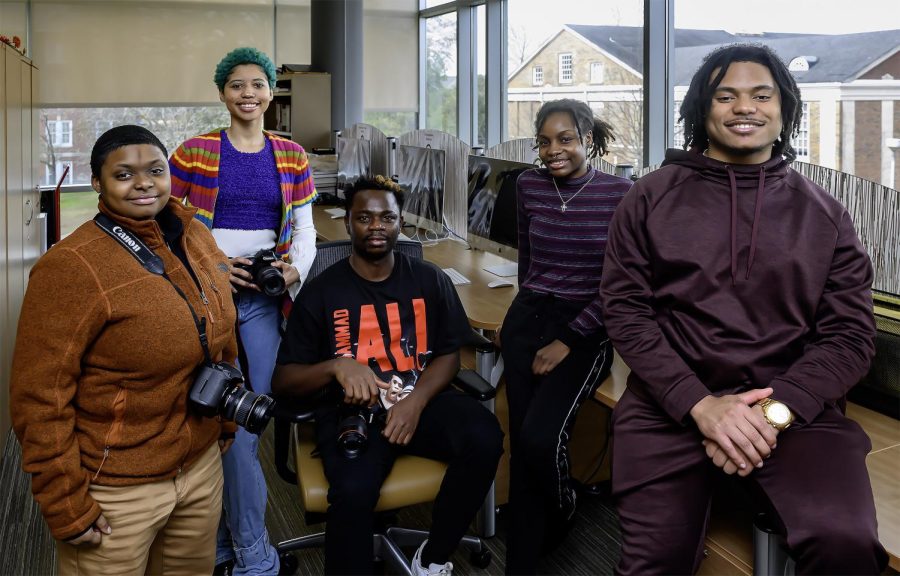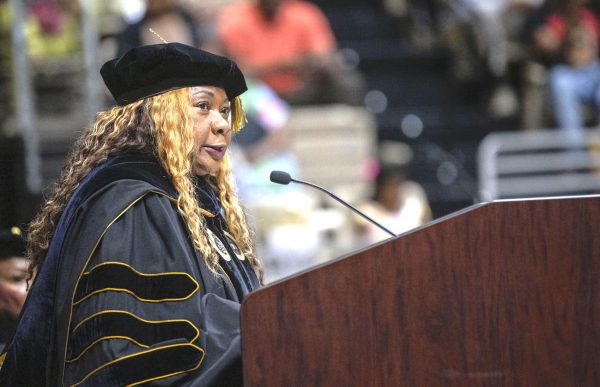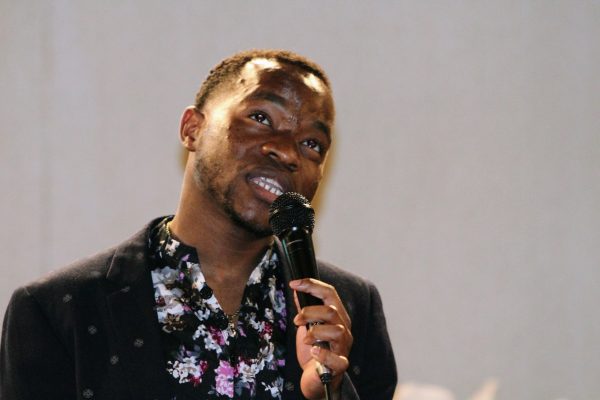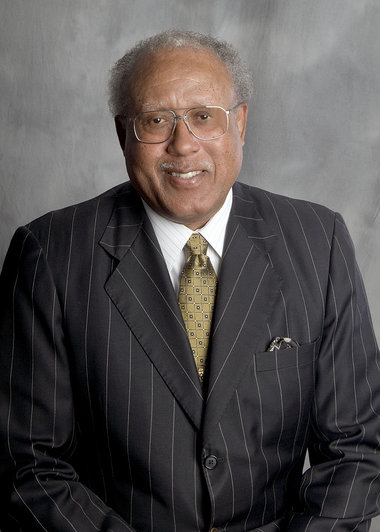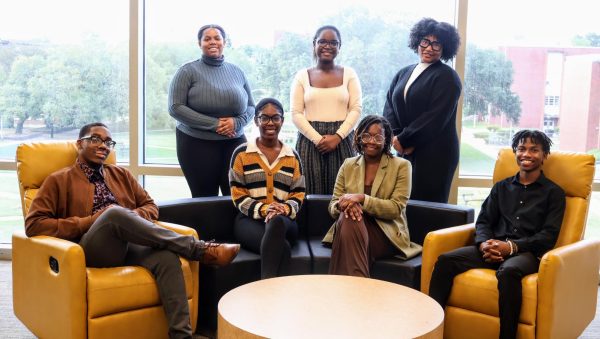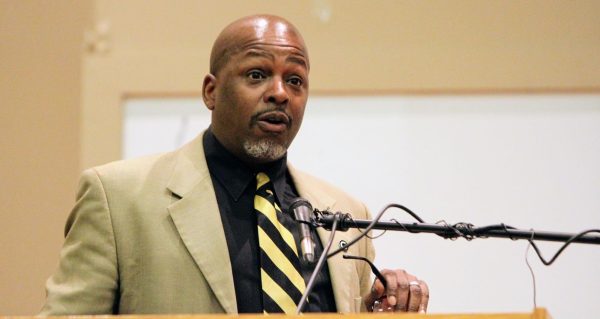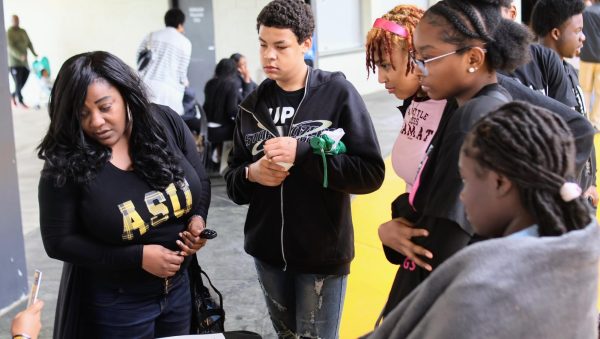The Hornet Tribune staff to compete in regional competition
(L-R) Jaelyn Stansbury, chief photographer, Liyah Hogan, managing editor, Brionna McCall, university news editor, Kendal Manns, editor-in-chief and Sitting) Lateef Oloko, managing editor
January 21, 2023
News stories, feature stories, sports stories, entertainment stories, podcasts, columns and editorials are just a few of the categories that members of The Hornet Tribune staff submitted as they prepare to compete in the Southeastern Journalism Conference (SEJC) “Best of the South” competition.
Each university or college member will compete in at least 10 of the 20 categories of competition and The Hornet Tribune is no exception. Last year, the staff won three first place awards and several other awards.
The ‘Best of the South’ competition is one part of a three-day annual conference that is hosted by Nicholls State University in Thibodaux, Louisiana on Feb. 9-11 this year. The conference highlights notable names in the journalism industry and will also deal with topics such as the future of print and broadcast journalism and how to use social media to advance ethical journalism.
The SEJC is composed of 35 member colleges and universities that converge together to discuss challenges facing the free press as well as the latest trends in print, online and broadcast journalism. The states included in the region are Alabama, Florida, Georgia, Arkansas, Louisiana, Mississippi, Kentucky and Tennessee.
“The conference allows the students who staff The Hornet Tribune to meet other students who are doing the same kind of work, especially since these are the same students that they will likely encounter once they begin pursuing their professional careers,” noted general manager Kenneth Dean, J.D. “Another reason why the conference is so important is that they bring in speakers who are actually working in the industry who will alert students to the latest trends in the industry, which of course, helps them to be more prepared once they enter the industry.”
According to Dean, SEJC is important to the university as a whole because it allows students to compete in several categories: writing, reporting, editing, photography, videography, design, podcasting, and broadcasting.
“If we are fortunate to win awards, it brings recognition to the university, because of the great work of our staff. The conference allows the staff to meet other students which allows them to interact and share ideas,” Dean said. “When a student newspaper wins first-place awards, it helps the staff to understand that their work is representative and competitive. The judges are professionals in the industry, so if something isn’t right with the story, the judges will point it out and let the students know how to improve.”
“Unfortunately, students today believe that writing is a dying art and they tend to be more visual,” he said. “However, SEJC emphasizes that writing and reporting are basic and without those tools, moving to the top in broadcast, online or print is non-negotiable. Students must understand that the skill of journalism will always be relevant, whether you work for a magazine, newspaper, broadcast or online. Knowing how to write is a feather in everyone’s cap.”
Editor-in-Chief Kendal Manns believes the newspaper ranking above all 35 participating institutions shows that the staff’s hard work is paying off and being recognized.
“I personally love competition, so whenever I get these opportunities they are always welcomed,” he said. “Winning at SEJC means a lot to me and has been ingrained into the minds of the staff members here all year. It would be a culmination of all our hard work.”
According to Manns, working at The Hornet Tribune may be hard for various reasons, but he is appreciative of the staff’s diligence.
“It requires long hours, sacrifice and the ability to receive criticism. These things are often increased when we are short-staffed like we normally are in my time here,” he said. “I am proud of all the work this staff has put in because without them none of this becomes a reality. They’ve been faced with adversity at every turn and have still managed to produce quality work, so I respect them even more.”
“When we win in the competition, the university looks better for it,” Manns said. “It’s a great promotional tool we can use to recruit students for The Hornet Tribune and the school alike.”


